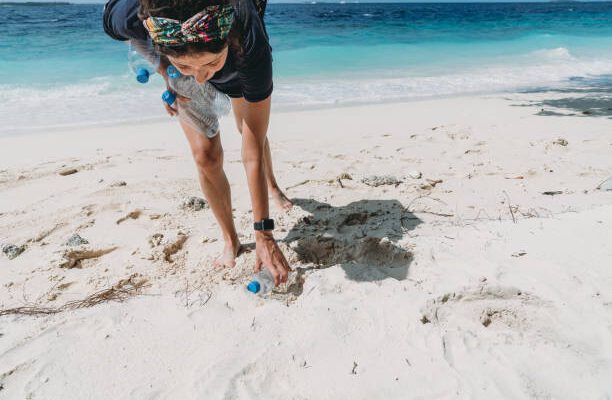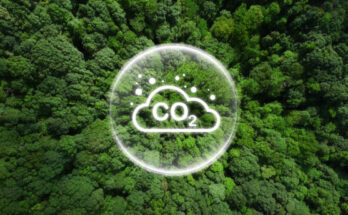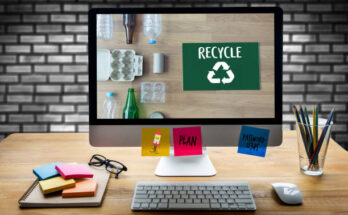It’s possible that just going about your everyday business. Using cleaning supplies, taking the dog for a walk—contributes unintentionally to the contamination of our already-challenged waters. Fortunately, there are a few really simple strategies to efficiently clean body of waters.
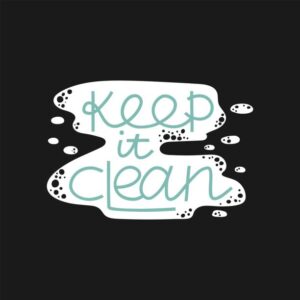 (Photo from istock)
(Photo from istock)
Water contamination occurs when pollutants contaminate water sources. Moreover, they make the water unsafe for swimming, drinking, cooking, cleaning, and other uses. Pollutants include things like chemicals, trash, bacteria, and parasites. Many forms of pollution eventually taint water. Air pollution contaminates lakes and oceans. An underground stream, a river, and ultimately the ocean could all become contaminated due to land contamination. Hence, garbage dumped on an empty lot has the potential to someday contaminate a water source.
Following are a few ways to keep water bodies clean:
Starting at your outdoor surface to keep water clean
Storm water transports all the debris it has collected along the way into storm. When passing over concrete or asphalt, the water drains. Make use of porous materials like wood, gravel, or paver stones. Avoid allowing these polluted streams to enter your own land whenever you can. Create a shallow trench along the border and fill it with vegetation or gravel to catch runoff before it spreads too far if a hard surface must be present (such as a road).
Keep a check on your toilet flush to keep it clean
Never flush nonbiodegradable items like plastic tampon applicators or baby wipes. They can cause major disruptions in the sewage treatment process and end up polluting the ocean and beaches. Who desires to stroll along a beach while stepping on their own waste? And, never flush expired medications down the toilet. Bring them to a nearby drugstore with a take-back programme instead.
Your sink is not a dustbin
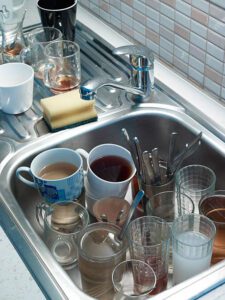 (Photo from istock)
(Photo from istock)
Don’t flush materials like paint, used oil, chemical cleansers, or other dubious household items down the toilet. Some products contain harmful components that we don’t want in our water supply (consider sodium hypochlorite, ammonia, and formaldehyde). You can use Earth911’s product search to find out when and where hazardous waste is collected. Or you can call your local sanitation, public works, or environmental health department.
Environment-friendly disposing
That goes beyond simply being a good neighbour. Pet faeces should be picked up to prevent bacteria-filled sludge from entering storm drains and water systems. Check your local laws first. The most convenient environmentally friendly disposal approach is to tie it in a recycled-plastic pet waste bag and dump it in the garbage.
Check your car waste
The spilling of oil, coolant, antifreeze, and other noxious liquids that are transported by rainwater down driveways. Or through parking lots and eventually seep into groundwater supplies can be reduced by good management. Take it a step further and never wash your car yourself; always use a car wash. Professionals are required to drain their wastewater into sewer systems so that it can be cleaned of any contaminants before being released. Even more people recycle that water.
Dumping the dirty water
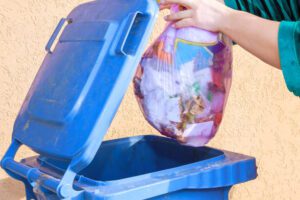 (Photo from istock)
(Photo from istock)
Without whistle-blowers, polluters will just keep doing what they’re doing. Contact the Clean Water Network or Waterkeeper Alliance to connect with a local environmental organization that can assist you if you notice questionable conduct in your neighbourhood. Real change can occur when smaller organizations partner with larger ones to pressure companies to adhere to regulations (e.g., the NRDC and the US Environmental Protection Agency). (Besides, it feels really, really wonderful.)
Recycling the goods to keep water clean
Recycling stops goods from entering rivers and oceans, as does properly discarding materials that cannot be recycled. When individuals discard cigarette butts on the ground near a river or beach, the ecology is dramatically affected.
Reduce the water usage
By using fewer chemicals during treatment, you may maintain water supplies cleaner while using less water. Also, it prevents additional water from being drained from the ecosystem by keeping water available in aquifers for when humans actually need it. Contrarily, careless water use can cause droughts.
Reuse the water
Create a grey-water reuse system and a rainwater collection system for your house to help you utilize water more efficiently. A simple rainwater collection device collects water from gutters in a barrel. Professionally designed and installed grey-water systems recirculate water through your house without contaminating it. For instance, water used for showers or dishwashing would always be pure and fresh, but after usage, it might be sent to the toilet and flushed away.
Contribute in community development
Participate in local efforts to design sensible water usage systems and make sure that wholesome waters are a part of any development project. Regularly participate in city council and town hall meetings, or even seek for office on the council or board of supervisors in your county. Even if you are not an authority on water consumption, you can put the topic on the calendar, hire knowledgeable advisors, and inform the public as well as yourself. You’ll defend waters on a worldwide scale by exercising direct influence over local planning.
Contaminations in water
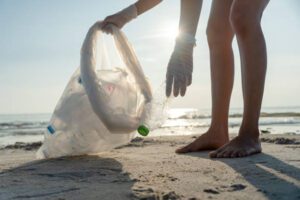 (Photo from istock)
(Photo from istock)
The majority of pollutants are water soluble, which means that water dissolves them. Contaminants can be diluted by water sources to a level that may not be hazardous. Several factors can affect a lake’s retention time, including the lake’s capacity, depth, and the number of rivers that flow into and out of it. Some lakes can hold chemicals for only a few months, while others can hold them for thousands of years.
Cleaning the contaminated water
According to estimates, cleaning up the environmental contamination that already exists in the United States might cost up to one trillion dollars. There are several strategies to achieve this, the most efficient of which is to safeguard water sources against present and potential contamination while enabling natural biological, chemical, and physical processes to degrade any current contaminants.
References:
SFGATE
Thinking about why we need Political Parties, click on the link below:
Why do we need Political Parties

